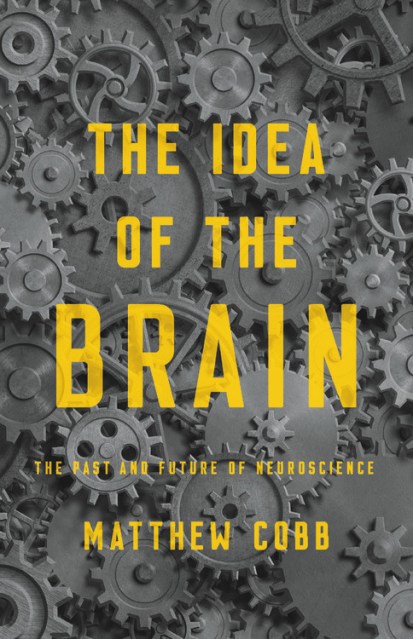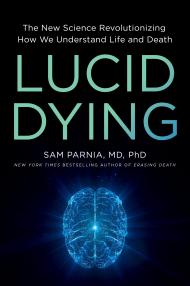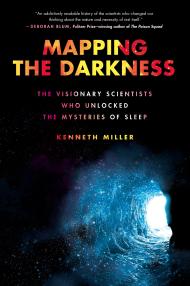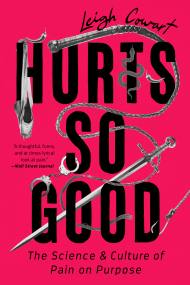Promotion
Use SCORPIO24 for 15% off site wide + free shipping over $45
The Idea of the Brain
The Past and Future of Neuroscience
Contributors
By Matthew Cobb
Formats and Prices
Price
$32.00Price
$40.00 CADFormat
Format:
- Hardcover $32.00 $40.00 CAD
- ebook $19.99 $25.99 CAD
- Audiobook Download (Unabridged)
This item is a preorder. Your payment method will be charged immediately, and the product is expected to ship on or around April 21, 2020. This date is subject to change due to shipping delays beyond our control.
Also available from:
“I cannot recommend this book strongly enough.”–Henry Marsh, author of Do No Harm
Shortlisted for the 2020 Baillie-Gifford Prize
Shortlisted for the 2020 Baillie-Gifford Prize
For thousands of years, thinkers and scientists have tried to understand what the brain does. Yet, despite the astonishing discoveries of science, we still have only the vaguest idea of how the brain works. In The Idea of the Brain, scientist and historian Matthew Cobb traces how our conception of the brain has evolved over the centuries. Although it might seem to be a story of ever-increasing knowledge of biology, Cobb shows how our ideas about the brain have been shaped by each era’s most significant technologies. Today we might think the brain is like a supercomputer. In the past, it has been compared to a telegraph, a telephone exchange, or some kind of hydraulic system. What will we think the brain is like tomorrow, when new technology arises? The result is an essential read for anyone interested in the complex processes that drive science and the forces that have shaped our marvelous brains.
-
"An intellectual tour de force, and a brilliant demonstration of how a historical approach is often the best way of explaining difficult scientific problems... I cannot recommend this book strongly enough."Henry Marsh, The New Statesman
-
"Elegant... engrossing... clear and lively... The reader will come away from this illuminating history of thinking about the brain with a renewed appreciation of the task that remains."Carol Tavris, Wall Street Journal
-
"This ambitious intellectual history follows the changing understanding of the brain from antiquity to the present... Cobb's account is an important contribution: few have offered such accessible insights, with choice examples and clear explanations of the societal factors that lie beneath... It is a very good book."Stephen Casper, Clarkson University, Nature
-
“The idea that [the brain] is a computer is just the latest in a series of metaphors, and one that is looking increasingly threadbare. So runs the argument of the zoologist Matthew Cobb’s rich and fascinating book.”Steven Poole, The Guardian
-
"The book reveals that there are many ways to think about what brains are, what they do, and their relation to the mind. Cobb's erudition and engaging writing style take us on an enthralling journey, rich with accidental discoveries, controversies, and rejected hypotheses."Science
-
"A first-rate history"Henry M. Cowles, The Los Angeles Review of Books
-
"Sweeping and electrifyingly skeptical"The Times of London
-
"A fresh history and tour d' horizon of "the most complex object in the known universe." Although scientists still struggle to understand the brain, they know a great deal about it; Cobb, a professor of biological sciences, delivers an excellent overview."Kirkus Reviews
-
"The mysteries of the mind have long attracted individuals predisposed to grandiosity. The Idea of the Brain makes it clear that neuroscience is still a jungle gym for lofty minds. The book will provide an accessible starting point for budding enthusiasts and students who are curious about the field's traditions and vital questions. Its loving erudition will also satisfy old crusty electrophysiologists seeking a hit of nostalgia. Matthew Cobb has captured a well-framed snapshot of a moment in time at which many of the questions are clear but the hard work of answering them is just getting started."Current Biology
-
"In this engrossing book, Matthew Cobb deftly recounts the tortuous history of research on the brain, in which researchers pursue the hard problems of memory, consciousness, and volition, always limited by forced comparisons between human brains and the machines available at the time. A work of history and deep scholarship, but written in an engaging and lively way, The Idea of the Brain is optimistic about the recursive attempts of our brains to understand themselves, yet reminds us that the three most important words in science are, 'We don't know.'"Jerry Coyne, author of Why Evolution is True
-
"This fascinating history of our quest to understand the brain is deeply researched and full of entertaining nuggets. Cobb is a reliably skeptical but sympathetic guide to the murky world of mind exploration, offering plenty of diverting stories along the way. You may be no closer to understanding your brain after reading this, but your brain will be richer for it."Gaia Vince, author of Transcendence
-
"The story of the most complex object in the universe has never been told with greater clarity, insight, and wit. Charting the route to future discoveries, this is a masterpiece"Adam Rutherford, author of A Brief History of Everyone Who Ever Lived
-
"Matthew Cobb weaves a fascinating story of the historical arc of neuroscience, from the initial discovery that the brain gives rise to our minds, to the state of the art in the manipulation and control of the brain."Russell Poldrack, author of The New Mind Readers
-
"This exquisitely well-researched and thrilling book charts an epic high-level quest to understand our deepest selves. Its scale and scope is phenomenal and leaves us with a profound sense of wonder about science and humanity as well as the brain itself. Altogether a feast."Daniel M. Davis, author of The Beautiful Cure
-
"A scholarly and wonderfully entertaining guide to the advances that have driven our knowledge of the brain, and the extraordinary people who have made them."Chris Frith, author of Making Up the Mind
-
"This is a book I wish I could have written, and one that I will be thinking about for a long time."Maria Picciotto, professor of psychiatry, Yale University School of Medicine.
-
"A masterful examination of the vast history of humans trying to figure out how the brain does its tricks. The scope, sweep and insight are stunning."Michael Gazzaniga, authorof Who's In Charge?
-
"Not only is this a work of phenomenal erudition, but it has the rare distinction among books on the brain of promoting no premature 'explanation' of how this astonishingly complicated organ does its job. Instead, Cobb offers an honest appraisal both of what we know and what is still a mystery. There is no better primer to one of the most profound questions facing science today: how matter creates thought and consciousness."Philip Ball, author of How to Grow a Human
-
"This wonderful book is the perfect starting point for any student of neuroscience, or anyone interested in the big questions of who we are and the changing ways people have thought about them over time. It charts the history of the subject from before it was a subject, enlivened with the stories of colorful characters, their good ideas and bad ones, and the false starts, lucky breaks and clashes of ideas and egos that collectively drove our still evolving understanding of how the activity of the brain produces the mind."Kevin Mitchell, author of Innate
-
"A truly terrific work and a wonderful read. The best book produced in my lifetime on the brain."Richard C Atkinson, PresidentEmeritus, University of California
- On Sale
- Apr 21, 2020
- Page Count
- 496 pages
- Publisher
- Basic Books
- ISBN-13
- 9781541646858
Newsletter Signup
By clicking ‘Sign Up,’ I acknowledge that I have read and agree to Hachette Book Group’s Privacy Policy and Terms of Use












